Last weekend, I finally cleared my schedule. No work emails, no errands, no endless to-do lists just pure, uninterrupted rest. I brewed some tea, curled up with a good book, and thought, “Okay, this is gonna be great.” Five minutes in, my chest got tight. My mind started racing with thoughts like, “Should I be doing something?” and “What if I’m wasting time?” It wasn’t boredom it was straight-up panic. 😣 Like my body forgot how to chill out
😊 What You’ll Learn:
- Why resting makes you feel “useless” and how productivity culture fuels this guilt.
- How tying self-worth to output creates emotional exhaustion.
- The physical sensation of not “earning” rest and its impact on your nervous system.
- Practical tips to reframe rest as a right, not a reward.

If you’ve ever felt restless or uneasy when you try to relax, you’re not alone. For those of us who’ve spent too long in survival mode whether from work stress, family chaos, or life’s ups and downs rest can feel more like a threat than a relief. Why does slowing down make us anxious? Is it a sign we’re broken? In this article, we’ll dig into why rest can trigger anxiety, explore the science behind it, and share gentle ways to teach your nervous system that stillness is safe. With real stories and practical tips, we’ll help you turn rest into a friend, not a foe. Ready to find peace in the pause?

Mental Wellness Test
Where Does Your Mind Need the Most Support?
Discover your emotional health in under 4 minutes.
Find out if what you’re feeling is:
burnout, anxiety,trauma
or just too many open tabs in your brain.
No pressure – Just clarity
Why Does Rest Feel Anxious?
Ever feel like you can’t rest without feeling useless? The pressure to always be productive can make even a Netflix binge feel like a guilty pleasure. This article explores why constant self-optimization leaves us exhausted and how to break free from productivity guilt to embrace true rest.
From the voice that calls you lazy to the physical tension of “unearned” rest, we’ll uncover the psychological and physical toll and how to find peace. Ready to stop the hustle?
Rest should be a breather, right? So why does it sometimes feel like a panic attack waiting to happen?
If you’ve lived in high alert say, juggling a demanding job, caring for others, or dealing with past trauma your brain and body might not know how to handle calm. Here’s why:

- Survival Mode Legacy: If you’ve spent years in fight-or-flight mode, your nervous system gets used to constant action. Rest feels unfamiliar, even dangerous, because it’s a shift from what you’ve relied on to survive.
- Unprocessed Emotions: Stillness strips away distractions, letting buried feelings like stress, grief, or guilt rush in. I felt this when I finally sat down and my mind replayed old arguments I’d ignored.
- Cultural Hustle: We’re wired by society to value productivity. Taking a break can trigger guilt, like you’re “slacking” when you’re not grinding. I used to think resting meant I was lazy, not human.
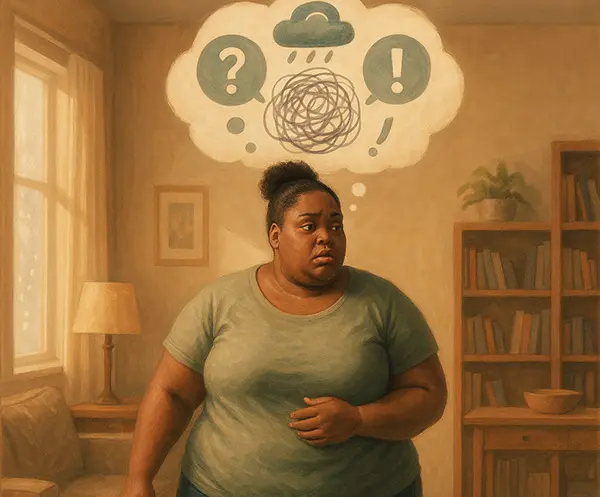
- Hypervigilance: If you’ve faced chaos or unpredictability, your brain might stay on guard, scanning for threats even when there aren’t any. A friend who grew up with an unstable parent says rest still feels risky.
- Fear of Missing Out: Slowing down can make you worry you’re falling behind while others keep going. I’ve felt this when I skipped social media to rest, then panicked about missing updates.
Why does rest trigger my anxiety? It’s because stillness unmasks what you’ve been running from. Your nervous system mistakes calm for vulnerability, thinking it needs to stay alert to protect you. It’s not your fault it’s a habit your brain learned over time. 😅
The Science Behind Rest Anxiety
Let’s geek out a bit. Rest anxiety ties into how your autonomic nervous system (ANS) works. The ANS has two main players: the sympathetic nervous system (SNS), which handles “fight or flight,” and the parasympathetic nervous system (PNS), which controls “rest and digest.” When you’ve been stressed or traumatized, the SNS can get stuck in overdrive, pumping out cortisol and adrenaline to keep you alert. The PNS struggles to kick in, leaving you wired even when you want to unwind.
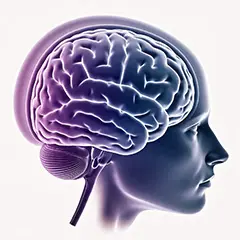
Scientific American explains that chronic stress shrinks the prefrontal cortex (decision-making) and hippocampus (memory), while over-activating the amygdala (emotion center). This makes your brain hypervigilant, scanning for danger even in safe moments like rest.
A 2021 study in Neuroscience & Biobehavioral Reviews found that people with high stress levels show reduced PNS activity, making relaxation feel foreign or threatening.
Think of it like a car engine that’s been revving for years suddenly idling feels wrong, even if it’s what you need. Your body’s not punishing you; it’s just out of practice with peace.
Signs You’re Struggling with Rest
How do you know if rest anxiety’s messing with you? Look out for these clues:
- Physical Tension: Tight chest, racing heart, or shallow breathing when you try to relax. I felt this tightness the minute I sat down with my tea.
- Racing Thoughts: Your mind jumps to to-do lists or worst-case scenarios. I’d think, “What if I miss a deadline?” even on a free day.

- Restlessness: Feeling the need to move or check your phone, even when you’re tired. My legs would twitch like I had to get up.
- Guilt or Shame: Beating yourself up for “wasting time.” I’d feel guilty for reading a book instead of working.
- Emotional Overload: Sudden sadness, anger, or overwhelm when you stop. A friend cried unexpectedly during a nap break.
- Sleep Issues: Trouble falling asleep or staying asleep when you finally rest, per Sleep Foundation.
If these sound familiar, it’s not a sign you’re weak it’s a signal your nervous system needs some retraining. 😊

Rest Anxiety in the LGBTQ+ Community
For folks in the LGBTQ+ community, rest anxiety can be amplified by unique pressures. Navigating societal stigma, family rejection, or identity struggles often keeps the nervous system on high alert.

A friend who’s non-binary told me they’d feel anxious resting because downtime brought up fears of not “proving” their worth in a world that questions their identity. Finding safe spaces like queer support groups or therapy with affirming pros can help rewire that hypervigilance. It’s about creating moments where rest feels like a right, not a risk. 😊
Ultimate Mental Wellness Test: Discover Emotional Health Just in 3 Min
Ever wonder where you stand with your mental health? That’s where our quick question Mini Mental Health Check comes in. It’s like a quick peek into your brain, giving you insights into your anxiety, burnout, and self-esteem levels.
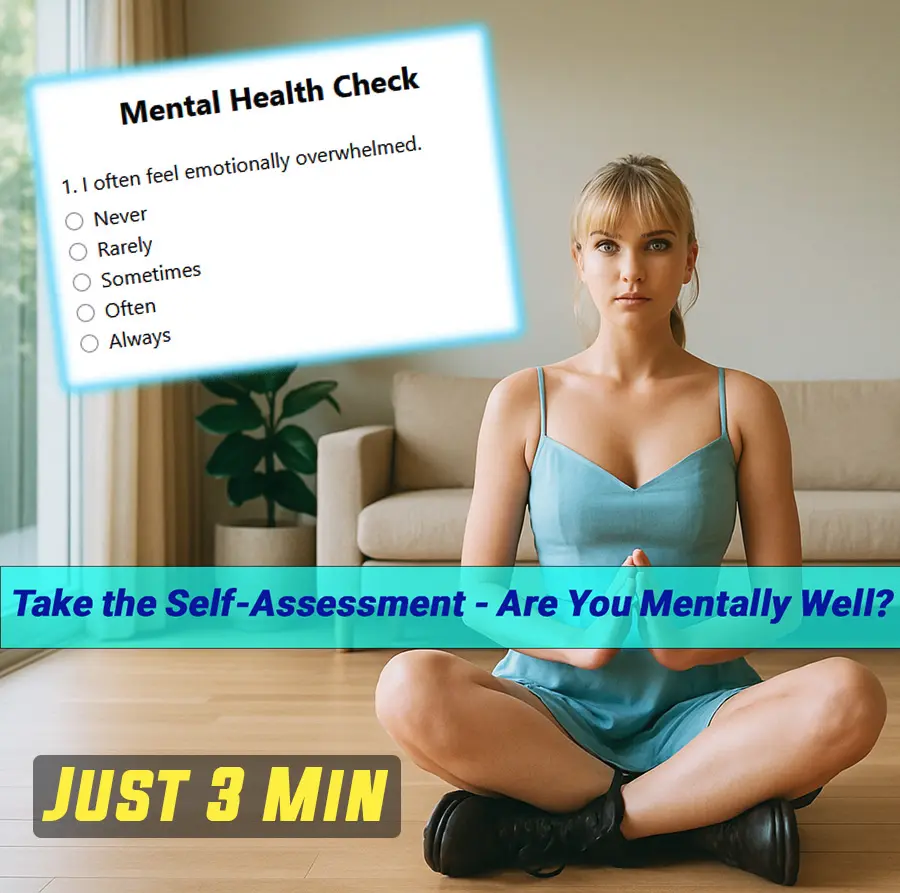
How to Teach Your Body Stillness Is Safe
Should I push through the anxiety? Gently, yes but with kindness, not force. Pushing too hard can backfire, making your nervous system more defensive. Here’s how to ease into rest:

- Start Small: Try micro-rests 30 seconds of deep breathing or sitting quietly. I began with 1-minute pauses, and it felt less scary.
- Ground with Senses: Use weighted blankets, soft music, or warm tea to anchor yourself. A warm mug of chamomile became my go-to.
- Talk to Yourself: Say, “It’s safe to soften. Nothing needs fixing.” I whisper this when my chest tightens, and it calms me down.
- Expect Restlessness: It’s normal to feel uneasy at first it’s your system rewiring. I’d get jittery, but I learned it passes.
- Add Gentle Movement: Rocking or swaying can soothe your body. I sway gently while breathing, and it helps me settle.
- Set a Routine: Rest at the same time daily to build a habit. I now take a 10-minute break after lunch, and it’s getting easier.
- Limit Stimuli: Avoid screens or loud noises during rest. I ditch my phone, and it cuts the mental noise.
Objection: “This won’t work I’m too anxious.” I get it when rest feels like a threat, it’s hard to start. But even a 10-second pause with a deep breath can begin to shift things. It’s not about forcing peace it’s about inviting it slowly. 😊
Real Stories: Learning to Rest
Let’s bring this to life with some stories (names changed for privacy):
- Maya: “I’d panic when I tried to relax after work. My therapist suggested 1-minute breathing breaks. Now I do it daily, and the tightness’s fading.”
- Liam, 33: “Growing up with a chaotic home, rest felt unsafe. I started with short walks, then added quiet time. It’s slow, but I’m getting there.”
- Sam, 27: Sam, who’s queer, felt anxious resting due to past rejection. “I joined a support group and started meditating. It’s helping me feel secure enough to pause.”
These stories show rest anxiety is common, but with practice, it can turn into a strength. 😊
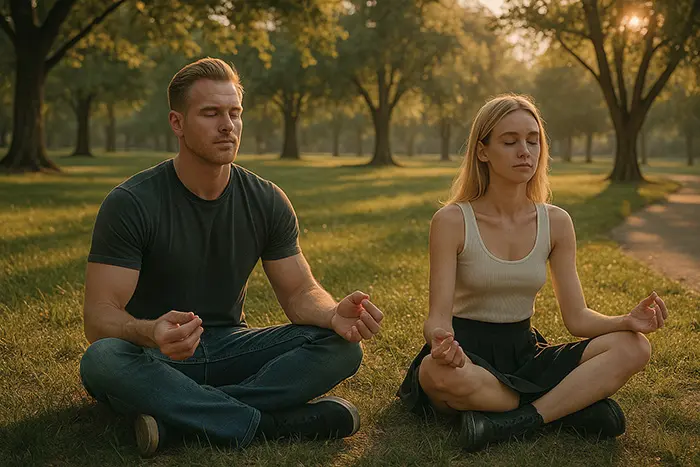
When to Seek Help

If rest anxiety persists, makes you avoid relaxation, or messes with your sleep, work, or relationships, it’s time to talk to a pro. Signs include:
- Constant restlessness or panic during rest.
- Physical symptoms like chest pain or dizziness.
- Feeling overwhelmed by emotions when slowing down.
- Trouble functioning daily.
A therapist can help, especially if trauma or anxiety disorders are at play. NAMI recommends trauma-focused therapy or CBT. I sought help when rest triggered daily panic, and it uncovered stress I’d ignored. It’s not a failure it’s a step toward healing.
The Psychological Toll of Constant Self-Optimization
Look, we’ve all been there trying to keep up with the latest productivity hacks, self-help books, and those perfect Instagram routines. But honestly, this never-ending hustle is totally messin’ with our heads and hearts. 😩 The pressure to always be optimizing leaves us feeling like we’re never enough, especially when we try to chill. You know that moment when you’re finally watching a movie, and halfway through, you’re like, “I should be doing something productive”? That’s the voice of productivity culture, and it’s loud. It’s like I can’t even enjoy a sunset without thinking I should be journaling about it or something.
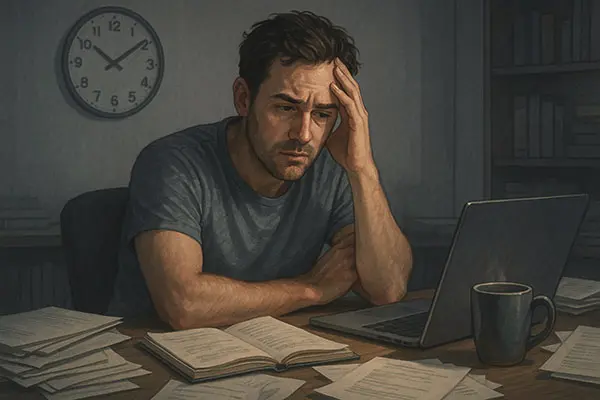
This mindset ties our worth to what we produce, making rest feel like a guilty pleasure instead of a necessity. For folks in the LGBTQ+ community, this can hit even harder constantly proving yourself in a world that’s not always welcoming adds another layer of pressure to “perform.” Learn how to overcome rest guilt. From a neuroscience perspective, our brain’s dopamine system gets hijacked by this hustle culture, wiring us to crave the rush of checking tasks off our lists. When we rest, it feels like emotional starvation, leaving us restless and guilty.
Why Rest Feels So Hard
That weird physical tension when you try to relax? That’s your nervous system on high alert, thanks to chronic stress from always pushing yourself. It’s like your body’s stuck in go-mode, and rest feels like you’re slacking off. 😣 This is where the idea of “unearned rest” comes in the belief that you gotta justify downtime with enough work beforehand. I remember trying to nap one afternoon, but my heart was racing because I hadn’t “earned” it. That’s not just mental it’s physical.
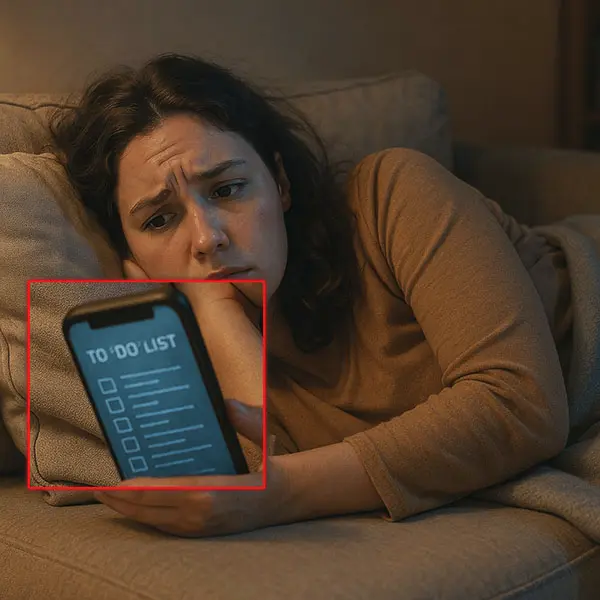
Chronic stress keeps your nervous system hypervigilant, making stillness feel like a threat. But here’s the deal: rest isn’t a reward; it’s a need. To break this cycle, try small steps like mindfulness or setting boundaries for guilt-free downtime. Maybe start with 20 minutes of doing nothing no phone, no guilt. It’s about realizing you’re worthy just for existing, not for what you achieve. Discover nervous system regulation techniques. Over time, these practices can rewire your brain to see rest as safe, helping you heal from the exhaustion of constant self-optimization.
Conclusion
Rest making you anxious isn’t a sign you’re broken it’s your nervous system adjusting after too long in survival mode. Whether it’s from stress, trauma, or cultural hustle, that uneasy feeling when you slow down is normal, and it can change. With gentle practice micro-rests, grounding, and self-compassion you can teach your body that stillness is safe. You don’t have to master rest overnight; just start with one small pause. Your peace is worth it.
Feeling anxious about rest? Try a 30-second pause today and share how it goes in the comments. Let’s support each other on this journey! 😊
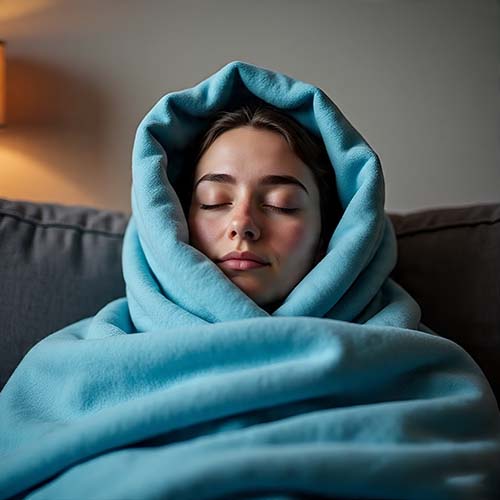
Related resources
- Scientific American: Examines how chronic stress impairs the prefrontal cortex, weakens decision-making, and heightens emotional reactivity.
- Sleep Foundation: Shows how anxiety interferes with falling asleep and staying asleep, creating a cycle of insomnia and worry.
- NAMI: Peer-led support groups and helplines offering free emotional support and mental health resources.
- Psychology Today: Explains how trauma triggers immediate nervous system overactivation before your brain can process it.
- Healthline: Offers in-depth guidance on recognizing and calming a dysregulated nervous system with breathing, movement, mindfulness, and lifestyle habits.
Don’t miss the related articles Decision anxiety
- The Guilt That Comes With Saying No
- Setting Digital Boundaries Without Feeling Like a Jerk
- What Is Emotional Self-Care and Why You Probably Need It
- Self-Care in Relationships: What Does That Even Mean?
- Can’t Turn Your Brain Off at Night? Here’s How to Quiet the Overthinking Spiral 🌙

FAQ
Stillness unmasks unprocessed emotions or stress. Your nervous system might mistake calm for danger if it’s used to high alert.
Gently, yes but with kindness. Force can worsen it. Build safety slowly with small rests and grounding.
No. As your system relearns safety, rest can become restorative with practice.
Restlessness is your nervous system adjusting. It’s not failure it’s a sign it’s learning a new rhythm.
✨ Last updated on 08.08.2025
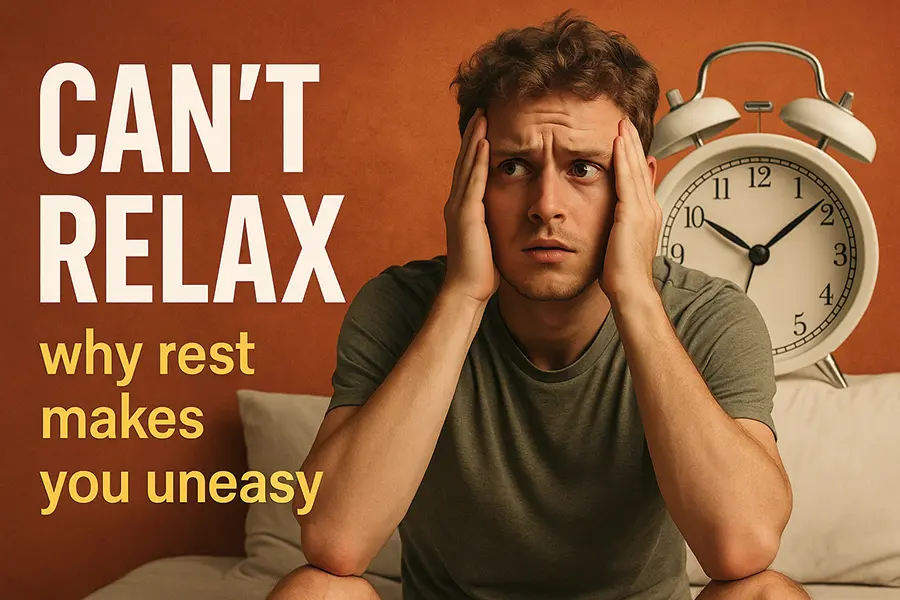
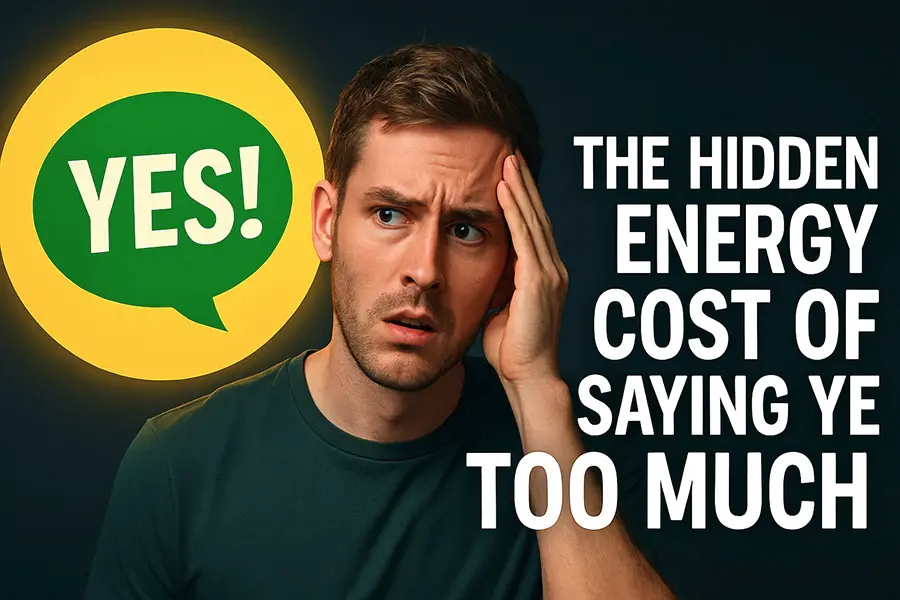
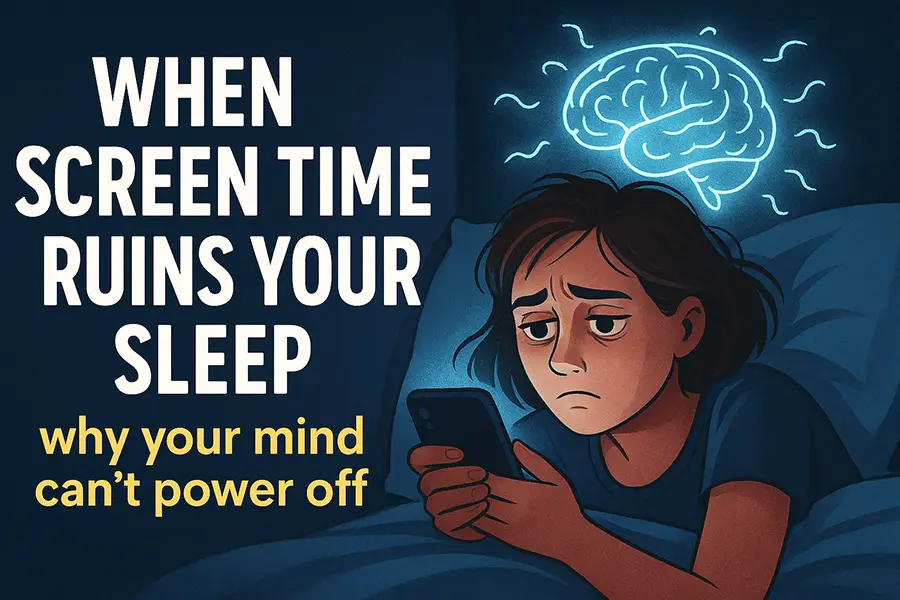

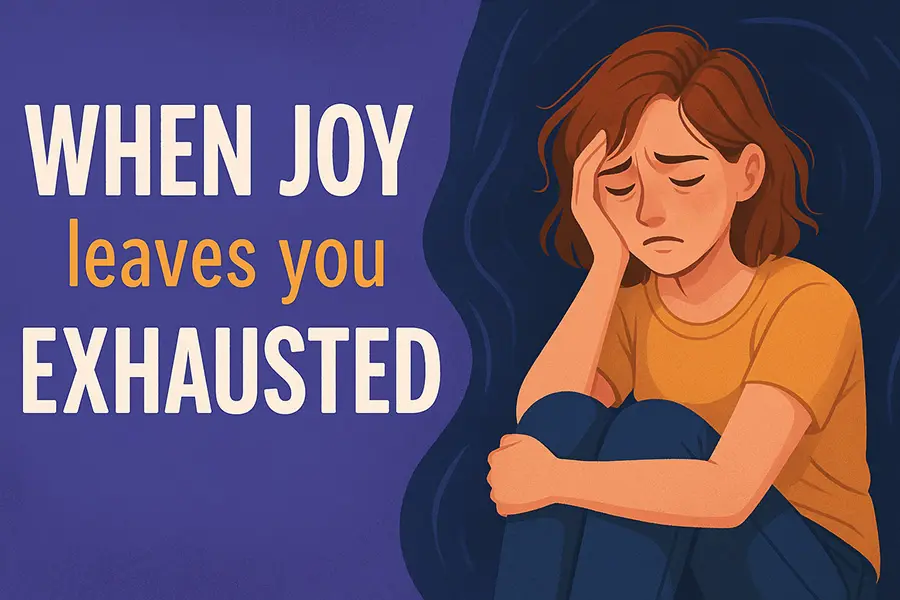
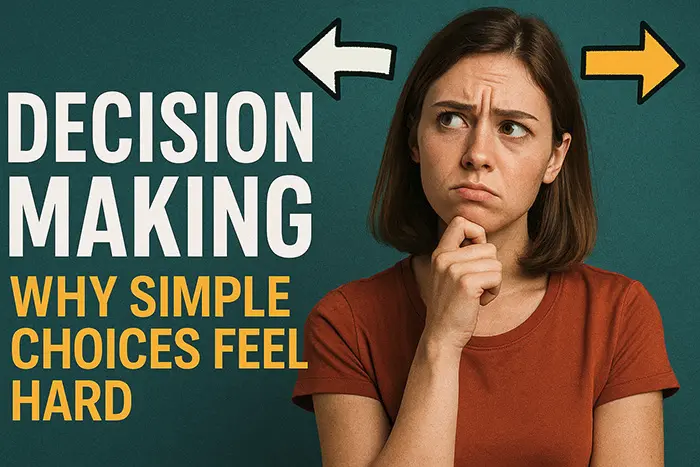
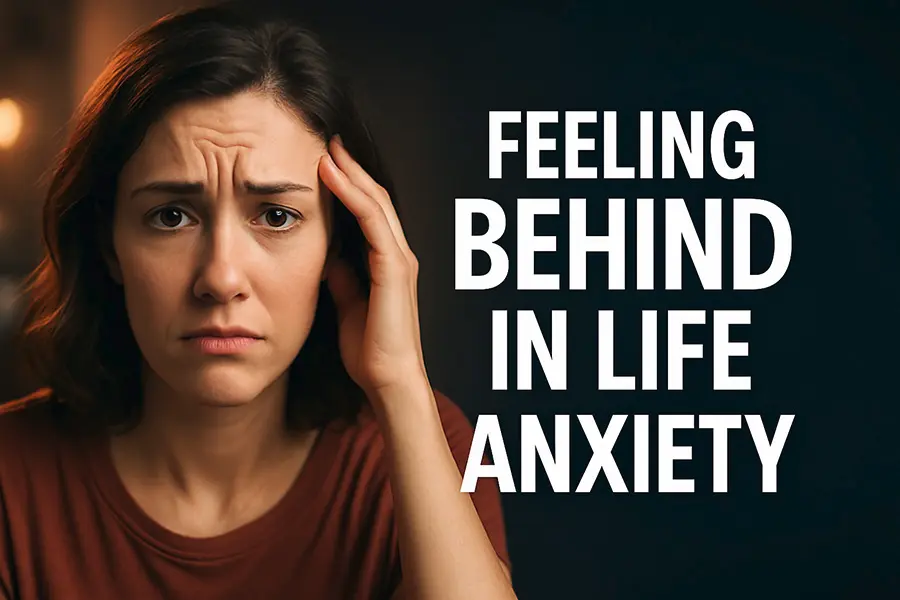
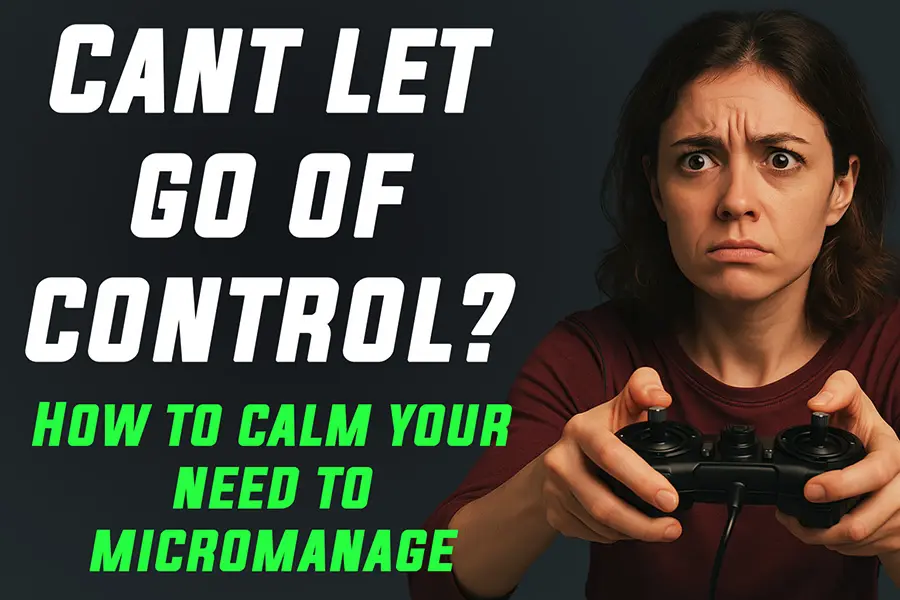
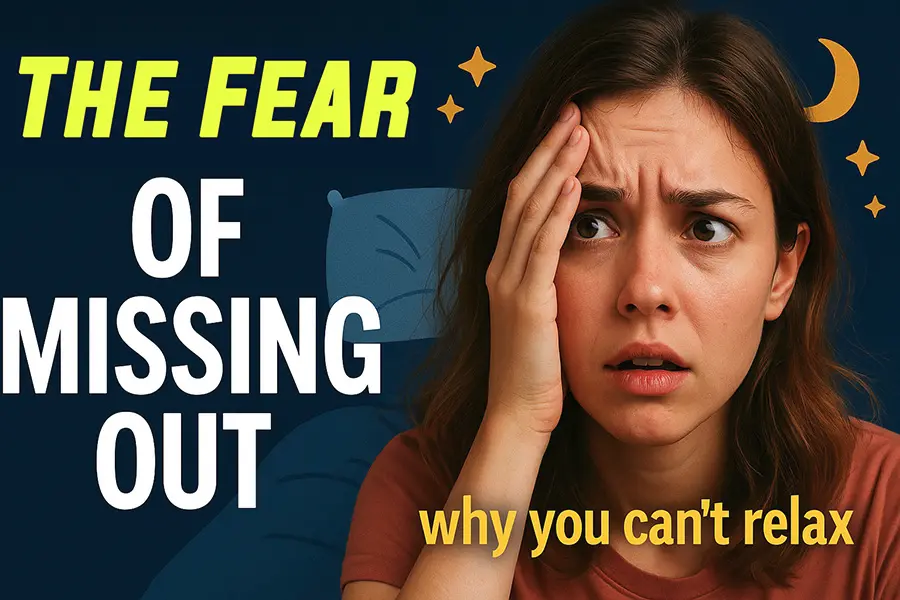
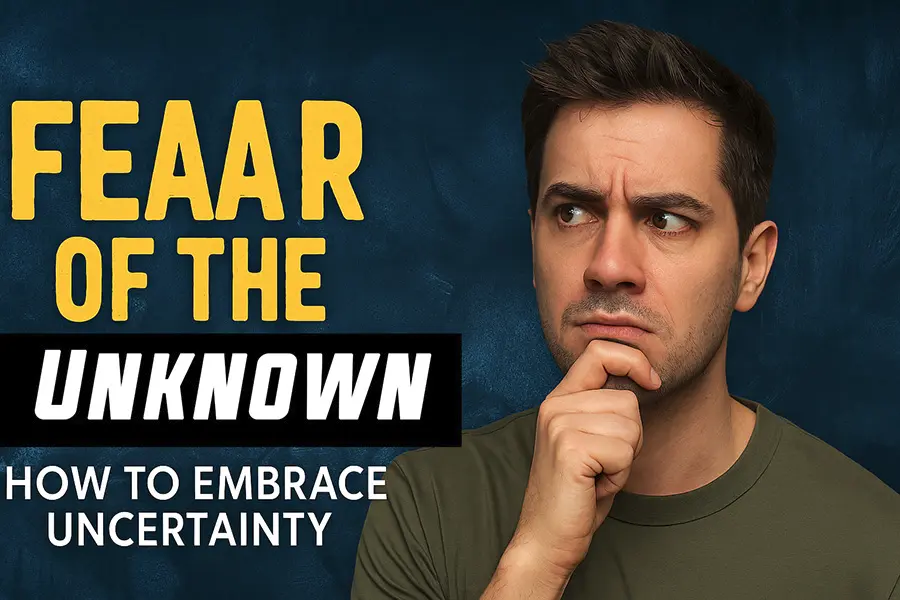
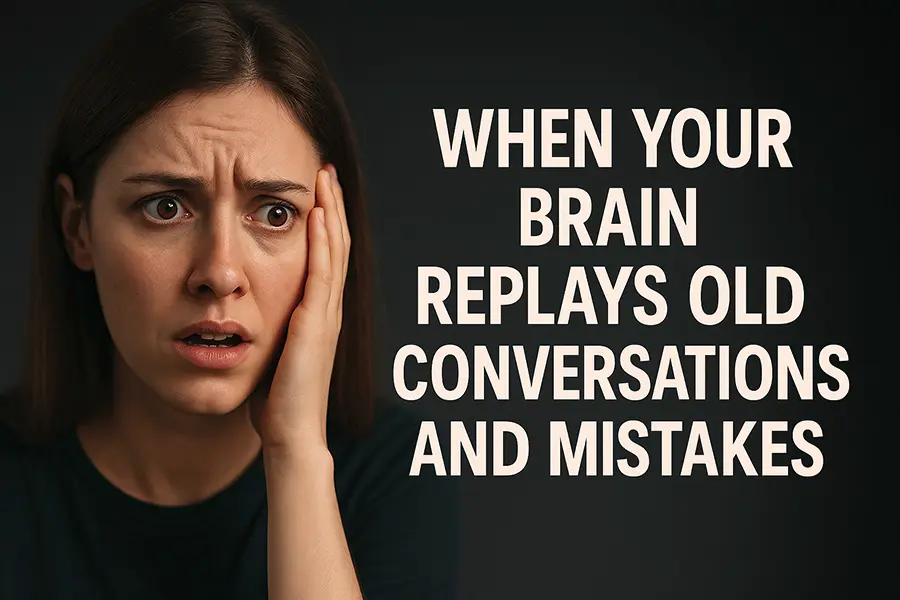
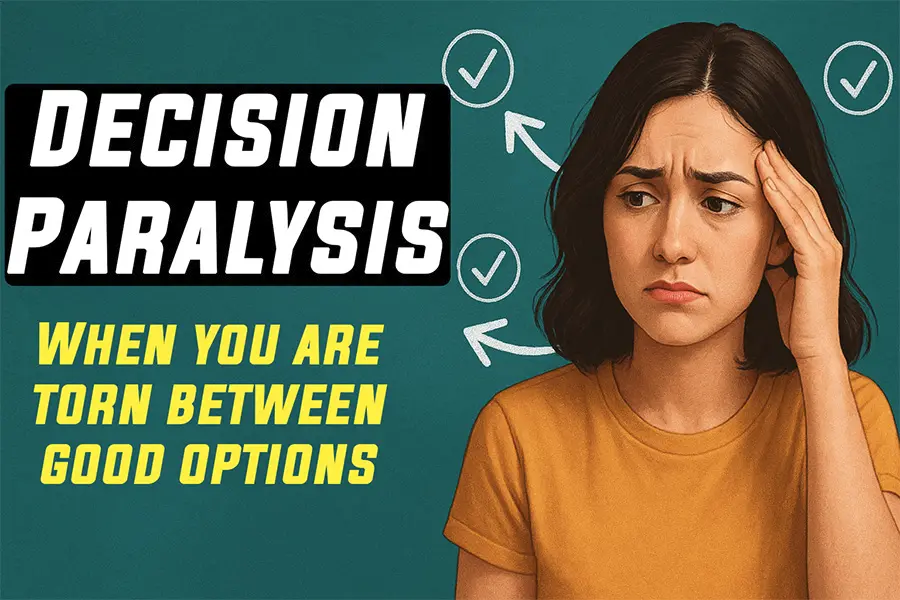










Leave a Reply